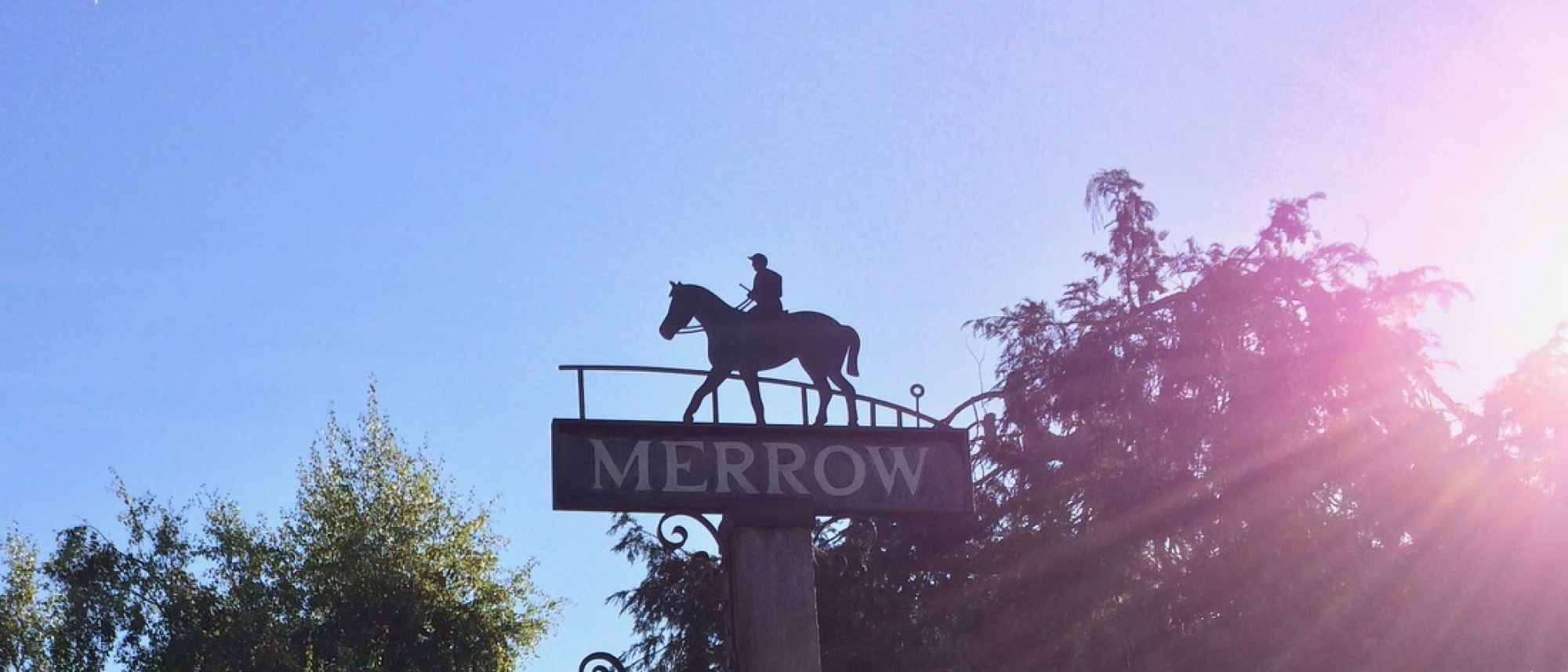William Swayne was working for Thomas Greathurst in Effingham in 1766. However he moved into Hall Place Farm in about May that year. He probably continued to work part time for Thomas Greathurst and certainly would have seen him a lot since he married his daughter, Anne, in August 1769.
William and Anne had six children, but sadly only two, William and Thomas, survived to adulthood. Anne herself died, aged 34, in 1783 shortly after giving birth to twins, both of whom died in infancy. The first Swayne to be interred in Merrow churchyard was Sarah, one of the twins, who died in June 1782 aged just seven days.
The nearest farm to Hall Place in Merrow was Coxhall Farm. This was owned and farmed by William Luck. William Luck and William Swayne both took a very active role in the life of the village. They were both active members of the Church, being churchwardens, overseers of the poor. William Swayne was a churchwarden from 1773 until his death in 1803. A Summons dated 1798 for William Swayne, as churchwarden, to appear before the Archdeacon of Surrey, is shown opposite.
The farmyard was next door to the church, in fact where the church hall now stands. One rather embarrasing episode for William whilst he was Churchwarden In 1802 there was a dispute between the Parish and William Swayne about the repair of the fences between the Churchyard and the Farm. This dispute calumniated in the Parish impounding all William Swayne’s pigs, which had got out and were running around the churchyard. Although it would appear that William Swayne was responsible for all repairs to the property, the Hospital told him that it was the Parish’s responsibility and backed him up by paying for the resulting Court case. They lost the case and paid William Smallpiece, the solicitor, for all the expenses incurred.
William Luck and William Swayne were also, jointly, the Land Tax Assessors for Merrow almost continuously from 1781 until …… with as short break in 1782 and 1783 for William Swayne when his wife was ill and dying.
William married Rachel Humpheys in 1787, four years after Anne’s death. He was widowed a second time when she died in 1795.
William died in 1803 and the next 21 year lease was signed jointly in 1805 by his sons William and Thomas. Sadly William died, aged 30, in 1806, so the farm was managed solely by Thomas for the next 53 years.
By this time William Luck had died and Coxhall was being managed by his son Edmond. On 14th May 1806 Thomas Swayne and Edmund Luck both appeared at St James’ parish, Westminster to make an oath of their intentions to marry Frances Elliott and er eldest sister, Anne. These Marriage Licence Allegations took the place of reading banns in church and, although the prospective brides would have had to have resided in the parish of St. James for at least four weeks, their father was a farmer from Loxwood in the parish of Wisborough Green in Sussex. It is not known how they met Thomas and Edmund.
Thomas and Frances had eleven children, all of whom, surprisingly in those days, survived to adulthood. The Luck’s were not quite so lucky. Their first two children died in infancy. They then had a further four children, all of whom did survive.
Of Thomas and Frances’ six sons, the eldest son, William, founded a building business in Guildford, which continued to operate until the 1980’s. Three of their other sons, Thomas, George and James set up their own grocery business – Thomas at Mayor House in Merrow and George and James at Farnham and Weybridge respectively. The two remaining sons took over the management of the farm when Thomas died.
Of the five daughters daughters, Mary Anne married Resta Moore, a woolstapler from Leatherhead, Frances married a grocer from Dover, Sarah Anne married a coach builder/corn dealer (interesting combination!) from Marylebone. Esther Swayne (aged 48) married Philip Pickett (a widower aged 63) at St. Mary’s, Send on 25th December 1863.
I have not been able to find out anything about the youngest daughter, Louisa, since her birth in 1818.
Most of Thomas and Frances’ son or sons-in-law are mentioned in the farm accounts in connection with their various business. The most common one is, of course, Thomas, who owned the grocery business in Merrow and bought much of his produce from the farm. This business was passed on to his son, William James Swayne on Thomas’ (the grocer) death in 1876. It remaines in the family until about 1910, when it was sold to the Kimber family.
Thomas (the farmer) also sold produce to Connisbee, the butcher in Merrow. The earliest account of this is
Thomas Swayne and his brother-in-law Edmund Luck continued the traditions of their respective fathers by being active members of the community and of the church. They were both churchwardens and overseers of the poor at various times.
